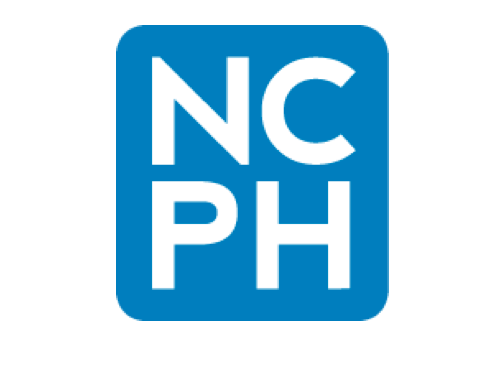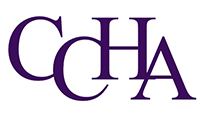
Please see below for the Call for Posters from the National Council on Public History:
NATIONAL COUNCIL ON PUBLIC HISTORY
2020 ANNUAL MEETING | ATLANTA, GEORGIA | MARCH 18-21, 2020 CALL FOR POSTERS
“THREADS OF CHANGE”
The National Council on Public History invites poster submissions for the poster session at our 2020 Annual Meeting in Atlanta, Georgia.
Submit a proposal at http://bit.ly/NCPH2020posters
Questions? Email Program Manager Meghan Hillman (meghillm@iupui.edu)
What is the NCPH Poster Session?
The NCPH poster session is a two-hour block of time at the annual meeting where presenters can share their projects with attendees in the form of a poster. It offers an alternative for presenters eager to share their work through one-on-one discussion, can be especially useful for works-in- progress, and may be a particularly appropriate format for presentations where visual or material evidence represents a central component of the project.
When is the Poster Session?
The poster session will be held on Thursday, March 19, 2020 from 5:00-7:00 pm at the Westin Peachtree Plaza. Set-up will start an hour before the poster session begins.
How to Submit a Proposal
Please fill out the online form at http://bit.ly/NCPH2020posters. Along with contact information and a brief (~300 word) explanation of your poster, we ask that you provide a one-page C/V for each presenter and a simple visual mock-up of your poster (saved and uploaded as a PDF).
How Will Your Proposal Be Judged?
The Program Committee will consider the persuasiveness of your abstract, the quality of your proposed visual presentation, and your project’s relation to major issues and questions in public history. Adherence to this year’s conference theme, “Threads of Change,” is not required, but reading over this year’s Call for Proposals may give you some helpful tips for your poster proposal.
When is Your Proposal Due?
Poster proposals are due MONDAY, OCTOBER 7, 2019. You will hear back about the status of your proposal by the end of October 2019. If accepted to the poster session, graduate students who are members of NCPH are eligible to apply for a Graduate Student Travel Award by December 1. Accepted poster presenters must register and pay for the conference by January 1, 2020.
Why is the Poster Session Important?
Posters are an interactive and collegial format for displaying and discussing project-based work and for showing off visual and material approaches. In the sciences, posters are often a way to present preliminary data on a research topic and gather advice. We understand that most posters for this conference will represent work that is complete, but we encourage students and advisors to present work as part of multi-year or ongoing projects so they can solicit advice and resources at the conference.
Guidelines for Posters
The following guidelines are an attempt to standardize the posters, leveling the playing field for all presenters and hopefully reducing the cost of participation (especially the cost of shipping). We are keenly aware of the need for creative license in creating the posters and do not want to squash anyone’s creativity; however, we ask that presenters stick to the size and material guidelines for the poster. Upon request in your proposal, one-half of a six-foot table will be provided where groups can display websites, video, audio, objects, or other supporting materials.
*Please note that basic wireless internet access will be available for the poster session. However, should service be interrupted for any reason, you may wish to save any websites or videos to your hard drive so that you are able to navigate the site without internet access.
What are the dimensions of a poster?
No larger than 36” x 48”. Please note that the cardboard provided to attach your poster to will be this size, so posters smaller than these dimensions may look untidy.
What materials should I use?
Use laminated paper or poster paper. If you will need space to hang a poster, please be sure to request an easel in your proposal. 36” x 48” cardboard will be provided to those who request an easel, as will binder clips to attach your poster to the cardboard.
Formatting and content advice:
• A good poster should introduce your topic, research questions or goals; describe methodology and/or best practices; and give outcomes (what was accomplished/what you learned)
- Give the poster a title.
- Use images to illustrate your points.
- Caption the photos with a title, photographer, and date.
- Keep text brief. Edit carefully. The test of a good poster is if someone can read it in two
minutes and understand your main points.
- Use backgrounds and graphics to enliven the look of the poster. Visual appeal is not a
secondary consideration but a fundamental part of your poster’s effectiveness.
- Print out all text. Do not hand letter.
- Consider making copies of your poster as handouts. This will mean shrinking the poster to
legal-sized copies. Observers often want something to take away. Provide your contact
information so folks can reach you later with additional questions, resources, and/or suggestions.
Printing and Shipping
You have a few options for printing and shipping. If you are staying in Atlanta, you may print the poster at home, roll it in a poster tube, and ship it to your hotel. (More details will be provided closer to the annual meeting.) You may also print your poster at home and carry it on the plane. If you do not wish to ship or transport the poster, you may email your poster file to a print shop in Atlanta and pick it up there.
If you’ve never designed or presented a poster before, here are some collected tips and tricks!
Resources to Consult
- 2014 NCPH attendee Stephanie Krom wrote a blog post about the NCPH poster session that includes great tips for poster presenters.
- Digital Humanities at Berkley has a guide to creating and printing digital humanities posters.
- The University of North Carolina Grad School has general tips and resources for poster
presentations.
- Tullio Rossi offers excellent advice for poster concept, design, and logistics at the blog for the
London School of Economics. While written with scientific posters in mind, most of this advice
is great for humanities posters as well!
- The American Historical Association has assembled a page on effective poster presentations.
- The American Public Health Association has some guidelines for putting together an accessible
poster presentation.
- The Association of University Centers on Disabilities also has guidelines for designing
accessible printed posters
